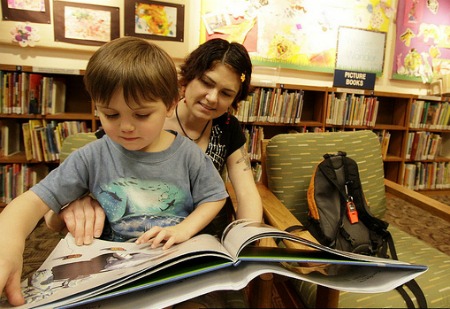
While enhanced ebooks engage young children with their interactive elements, print or basic ebooks may be more effective for encouraging literacy, according to a new study by the Joan Ganz Cooney Center.
The findings, released May 29, are from a “QuickReport” on the experience of 32 pairs of parents reading a print book and ebook on an iPad together with their children, ages 3 to 6. Small sampling notwithstanding, the results do support earlier studies that establish distinct differences in the print and digital experience, particularly with enhanced ebooks. And further investigation is indicated, according to the report.
Noted in the QuickStudy:
- Children who read enhanced ebooks recalled significantly fewer details than subjects who read the same story in print. The features of the enhanced ebook may divert the attention of both parents and children from the narrative, which may have affected the kids’ ability to recall the story, concluded researchers.
- Reading a print or basic ebook with their parents prompted similar content-related actions by children—including labeling, pointing, and verbal elaboration of the story—which can support language development. On the other hand, the enhanced ebook drew activity—e.g. “device-focused talk”—unrelated to the book’s content.
So what’s a parent or teacher to do? Opt for print or basic ebooks to build literacy, recommends the QuickStudy researchers. But it’s hard to beat the sheer appeal of enhanced works, notes the report, which can go far in encouraging the very young, especially those reluctant to engage books at all.
Photograph by sean dreilinger



There will always be a place for paper books in the education of children. It is helpful to see specific examples of where each version of books can be best used.
I have found reading an enhanced ebook with my young children to be very distracting. The interaction is child to device not child/parent/book (i have heard this described as the “reading circle”). I prefer print books but basic e-books at least allow me to read and talk to my child without too much interruption.
Thank you for sharing this research!
I am curious as to how many of the participants in the study had eBook devices at home. I could not find mention of that in the study, unless I’ve overlooked it. I think that’s an important detail because if the eBook device was new to the children, it makes sense that there would be an increase in non-content related activity due to their curiosity about the device itself.